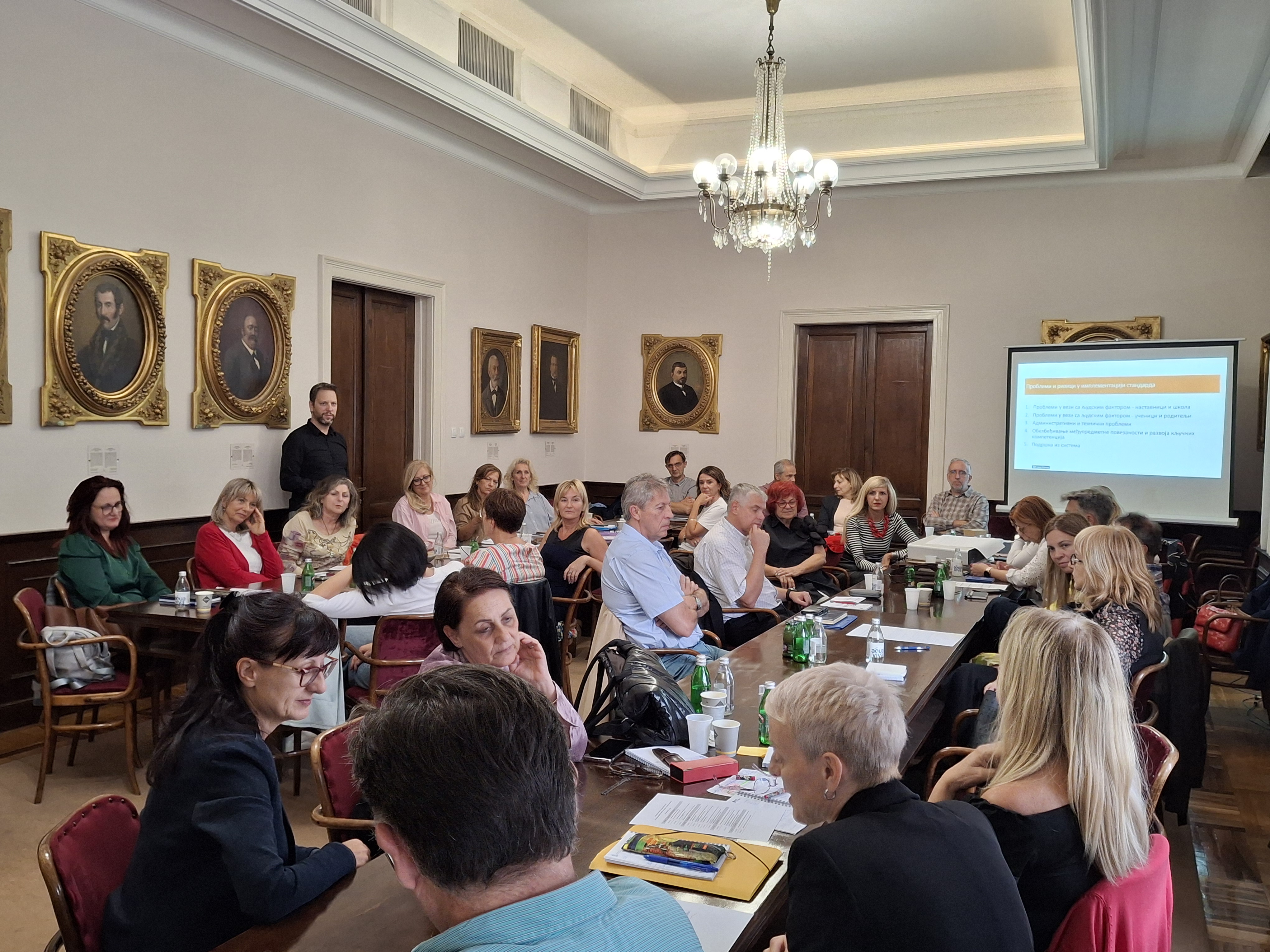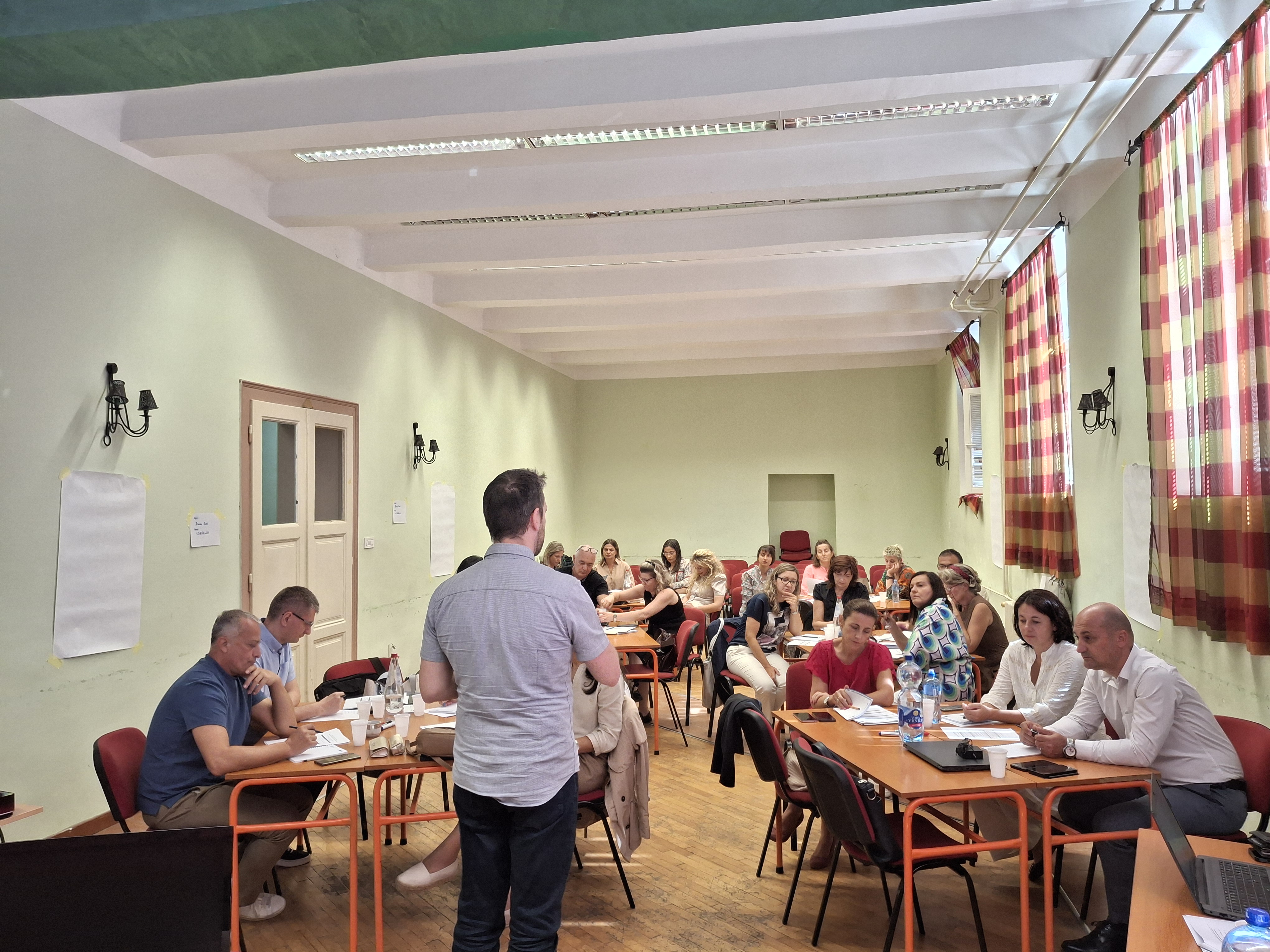Training Cycle on Education Standards Completed
A series of professional trainings on educational achievement standards was successfully completed in four cities – Niš, Kraljevo, Belgrade, and Novi Sad.
More than 170 educational advisors, external consultants of the Ministry of Education, as well as external evaluators participated in the training series. Through interactive activities – practical exercises, group discussions, and presentations – they significantly enhanced their competencies for applying the new standards in the daily work of schools.
The trainings were conducted in cooperation with the Institute for the Evaluation of the Quality of Education and Upbringing, as part of the project “Support to the Educational Policies of the Republic of Serbia,” funded by the European Union and implemented in cooperation with the Ministry of Education.

In the first trainings, held at the Niš Center for Professional Development on 25 and 26 August, 42 participants attended. Then, on 22 September, in Kraljevo, at the Agricultural-Chemical School “Dr Đorđe Radić,” 23 participants gathered. The trainings in Belgrade, at the Institute for the Evaluation of the Quality of Education and Upbringing (ZVKOV), held on 23 and 24 September, were the most attended with 85 participants. Finally, in Novi Sad, at Matica srpska on 26 September, 26 participants attended.
The objective of the trainings was for educational professionals to gain knowledge about the structure of achievement standards, classification of outcomes by subject competencies, cross-curricular competencies, and the identification of potential obstacles. Participants discussed challenges in applying the standards and possible solutions, with a focus on practical implementation in the teaching process.
“The most important question is how the new achievement standards can enter schools and become functional, producing the desired effects. It is also essential to recognize the challenges and obstacles that will inevitably arise and to define possible solutions,” emphasized Professor Dragica Pavlović Babić, project expert, during the introduction to the first training in Belgrade.

“These trainings represent a very important step in supporting teachers, educational staff, and all other actors who will implement the new achievement standards in our schools. The training itself is competency-based, just as the new achievement standards are designed to shift the focus from traditional content-centered approaches to developing competencies, i.e., students’ functional knowledge,” stated Vladeta Milin, project expert, after the completion of the last training.
Participants highlighted the importance of developing students’ competencies and their practical application in real-life situations, which especially motivates young people by showing where and how new knowledge can be applied in everyday life.
The European Reference Framework of Key Competences for Lifelong Learning provides support for students, educational staff, and other professionals. Eight key competences are defined: literacy; multilingualism; mathematical and scientific; digital; personal, social, and learning competence; citizenship; entrepreneurship; cultural awareness and expression.
Education is the foundation of personal and professional development. It enables individuals to become more active members of society and better prepared to contribute to social and economic progress. The European Union (EU) and Serbia closely cooperate on the modernization and reform of the education sector in Serbia, and this project is part of that joint effort. The project complements the Sector Reform Agreement with the Republic of Serbia, valued at €28.5 million, covering the period 2024–2026.
The EU is the largest partner of the Republic of Serbia in modernizing the education system. Since 2003, the EU has donated over €130 million for education reform at all levels, aiming to strengthen the role of education as a foundation for social and economic development.


